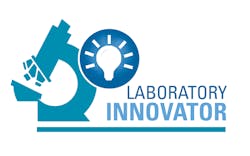Your company, ResearchDx, provides clinical laboratory consulting services. What are common issues that the consulting services help labs with?
The common theme in all our services is in assisting clients to meet compliance in what can be a confusing regulatory environment. Navigating the requirements of multiple jurisdictions, federal (CLIA), state licensure, out-of-state licensure, FDA, accreditation agencies, and international standards are our specialty. This is particularly the case for our international clients looking to meet U.S. regulatory standards.
Are there particular lessons learned that you can share through your experiences as a lab director and an A2LA assessor?
Good preparation, an understanding of the requirements, and good documentation are all essential. I have been on both sides of the audit agenda; as an audited laboratory and as the assessor. What has impressed me about A2LA accreditation is that the process is consistent and transparent, there is a dedicated accreditation manager, and the ISO15189 standard takes a more holistic approach to the organization at large, not just the clinical laboratory.
What do you think the future holds for personalized medicine in the next 5–10 years?
With any new paradigm, reality takes some time to catch up with the rhetoric. There are clearly successes to date, but I anticipate a more widespread application and adoption of the concept in the years to come. While oncology has seen the biggest adoption of companion diagnostics in the personalized medicine space, ResearchDx in its assay development services is seeing a wider range of applications across multiple additional specialties. The next decade will see a much more widespread adoption and implementation of personalized medicine and companion diagnostics.
If the VALID Act (S. 2209 and H.R. 4128) for laboratory-developed tests passes, what are some of the changes a lab-developed test process will experience?
In the event that the VALID Act passes, there will be an increase in the regulatory burden on new clinical laboratory assays, particularly for validation and approval. There are varied opinions as to the merits of the VALID Act and the alternative, more CMS-centric VITAL Act. Any resolution to the turf war between CMS and FDA would be desirable. Regardless of the outcome, if there is clarity on the requirements then that removes the current uncertainty in the industry and provides a clear path forward.
You have had a long career in the clinical laboratory field. What advice can you share on career longevity?
Always keep learning! As regulations change and new technologies are introduced, it’s important to keep up to date and be adaptable. As the pace of change increases, it’s even more important to keep learning.


